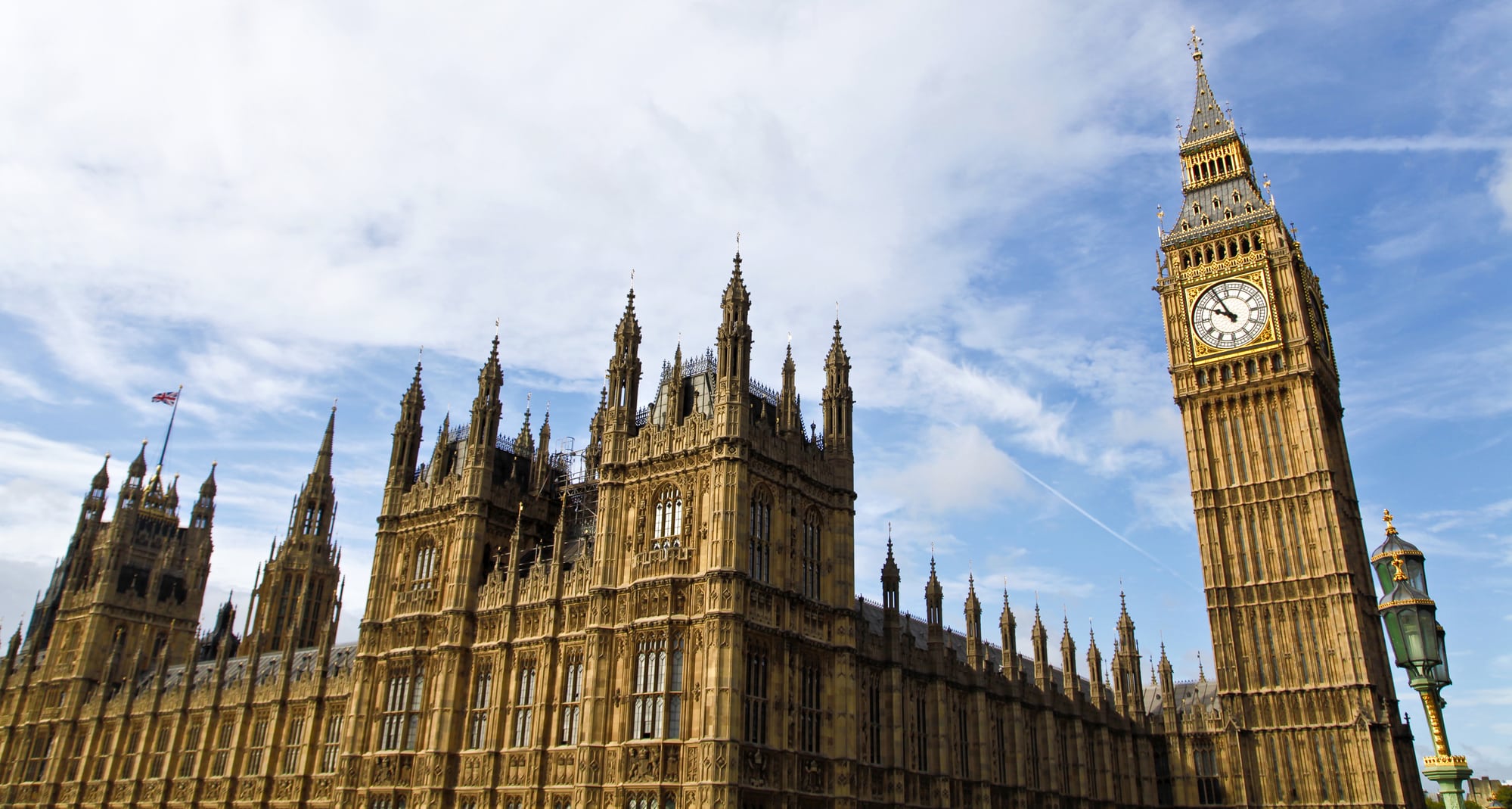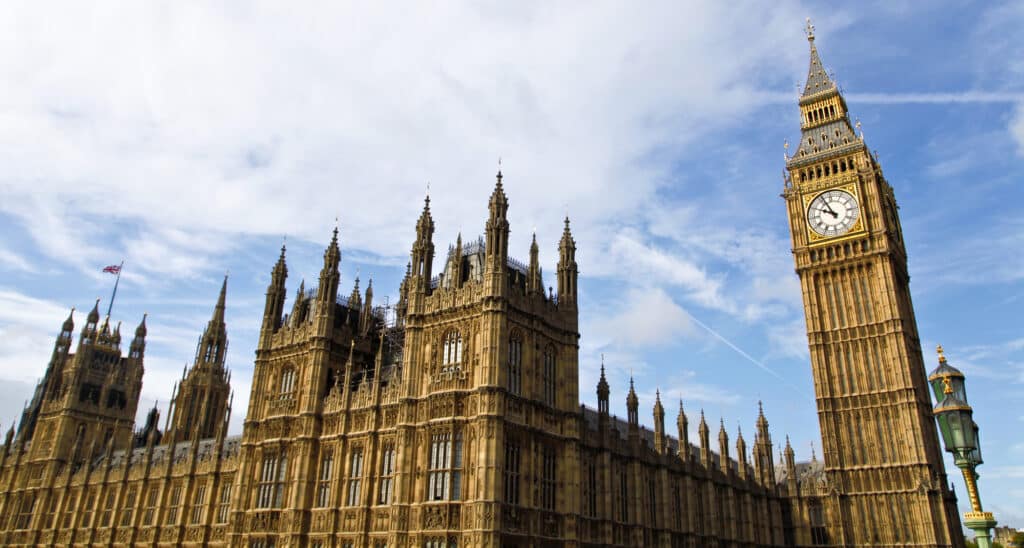Is business taking human rights more seriously?
Business Ethics Debates | read time: 4 min
Published: 6 November 2019

GoodCorporation welcomed John Morrison, Chief Executive of the Institute for Human Rights to lead our October business ethics debate at the House of Lords. The debate explored what has changed in human rights and asked Why are businesses taking human rights more seriously?
John confirmed that The Corporate Human Rights Benchmark has seen a huge change in engagement in the three years since its launch. Initially, the majority of companies were disinterested. That has reversed and today 75 per cent of the organisations in the benchmark are very much engaged.
While the engagement has changed markedly, improvement has been slower, however, this is expected to change. Five key drivers were identified.
1. Transparency: current economic models are under considerable scrutiny with human rights very much in the spotlight. Within Europe, the political push towards mandatory human rights due diligence is clear and businesses would welcome a unified approach from governments moving towards a standardised set of human rights obligations that all companies have to comply with.
2. Trade: human rights are being invoked as part of the current protectionist agenda: the latest NAFTA agreement was far stronger in terms of labour protections than its predecessor. Governments are realising that completely free trade might be contributing not only to lost high quality jobs at home, but also reliance on poor labour standards and exploitation abroad.
3. Accountability: the failure to hold those at the top accountable for criminal abuses needs to change. There is some evidence of Governments taking a tougher line against criminal abuses and there is discussion at the United Nations about an international treaty on human rights. The class action law suits that we are seeing indicate that companies and directors can be held accountable for serious human rights abuse.
4. Finance: the Principles for Responsible Banking launched in New York in September place a renewed emphasis on the need for banks’ strategies to be consistent with and contribute to the needs of individuals and society’s goals, as expressed in the Sustainable Development Goals, the Paris Climate Agreement and other relevant national frameworks. This is likely to lead to more scrutiny by banks in relation to human rights in the projects that they are lending to.
5. Data: the right to privacy is emerging as a major issue. All organisations need to be on top of privacy, data management and the rapid advances in the use of personal data such as facial recognition. Data rights are now an active battleground between activists and corporates and this is pushing human rights in a new direction.
Given these trends, companies were asked if they felt broadly comfortable with their efforts to ensure human rights are protected and respected in their organisations, or if they felt that more could still be done?
While the majority felt that there was still more to do, those that were confident in the practices and procedures in place identified the following as effective:
o Oversight, governance and accountability systems – with clear leadership and someone nominated to specifically work on human rights.
o Implementing human rights risk assessment to ensure that all salient human rights risks are identified and mitigation can therefore be properly considered.
o Having specific speak-up and grievance mechanisms that would allow human rights problems to be identified and reported.
o Building human rights risks into outsourcing and recruitment strategies.
o Undertaking transparent reporting on human rights, such as meaningful Modern Slavery Statements.
Most, however, agreed that preventing human rights abuses is such a complex and evolving area that it would be complacent to feel comfortable. Factors such as the increased prevalence of slave labour, the decline in workers’ rights and union organisation, the large groups of displaced people resulting from conflict and the diminishing desire globally for collaboration combine to increase the need for greater human rights vigilance.
For many organisations, implementing an effective programme is as much about ethics and responsibility as legal compliance. It is increasingly regarded as essential for reputation management, particularly with regards recruitment as well as ESG evaluations and long-term sustainability.
More of the critical factors for successful human rights management were discussed, including: –
o The need for senior level commitment to drive change; this must be a board issue.
o Implementing an effective speak-up system so any abuses can be reported.
o The need for on-site monitoring to observe practice, ensuring that stakeholders internally and externally are actively encouraged to voice any concerns.
o The need for authority to make any necessary changes if and when problems are identified.
Questions were also raised around public procurement. Why is it that governments and public bodies have been so slow to move towards standard contract requirements in relation to human rights and including human rights respect in contract tender evaluations.
John concluded with four key points, advising organisations to acquire knowledge, put mitigation measures in place, disclose what you know and provide a remedy.
The GoodCorporation View: Societal, legislative and financial pressures are driving human rights up the corporate agenda. The vast majority of organisations want to ensure that human rights abuses are not occurring anywhere in their own organisations and value chain, but in a complex, global marketplace this can be a challenge. Understanding all the salient human rights issues, including those in the supply chain, is the first place to start. It involves looking at actual practices on the ground and actively engaging with workers, communities and any other potentially affected stakeholders. Companies can then adopt effective mitigating measures to remedy impacts and prevent human rights issues from reoccurring. European governments are starting to coalesce around human rights legislation that will drive change in corporates. We are likely to see increased requirements for risk mapping, human rights impact assessments, and enhanced transparency over the next few years. Some companies are not there yet, others are well advanced on this journey. Our experience suggests that companies need top management’s sustained commitment as well as a good governance framework to make progress.
work with us
